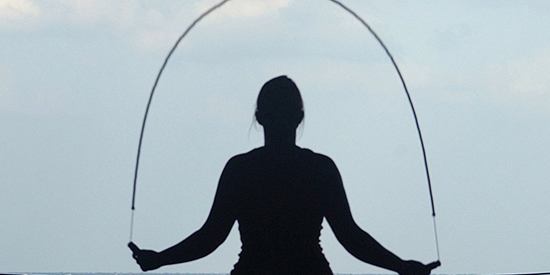Post-menopausal women should jump to help prevent falls: Deakin study
Media release
A new study published in Osteoporosis International has found that 'explosive power' such as in jumping might be key to help post-menopausal women with osteoporosis to keep their balance and help to prevent falls.
Post-menopausal women often struggle with their balance due to low bone mass, or osteoporosis, which also makes them at a higher risk of bone fractures after a fall.
Associate Professor Daniel Belavy from the Institute for Physical Activity and Nutrition at Deakin University, said until now there has been limited research in this important area.
"The study tested 63 women aged 57 to 74 years, who had low bone mass at their spine or hip, on their ability to jump, stand on one leg and try to keep their balance on both stable and unstable surfaces, their leg-press strength and calf-muscle size and fat content.
"We found in these women, neuromuscular power was in fact more important for them in terms of balance, rather than muscle strength or size.
"Neuromuscular power is a measure of how quick, fast and hard, with intensity, that a person can move. For example, someone might have huge muscles and be strong, but they might not be able to use that quickly. You can think of a boxer versus a body builder.
"We found that the women's ability to jump was related to their postural control or balance, but not how 'strong' they were or how big their calf muscles were," he said.
Associate Professor Belavy said that controlling balance was a complicated task and required control of the body's core mass as well as the ability to anticipate adjustments to your posture.
"Most postural training approaches have looked at strength training, however our study suggests that explosive power training could be important to integrate into falls prevention and balance training programs in post-menopausal women with low bone mass, which includes osteoporosis as well as osteopenia (low bone mass not quite at the level of osteoporosis).
"We all lose muscle power as we age, and it is important for post-menopausal women in particular to try and include some form of rapid, explosive muscular or movement training into their fitness routines," he said.
"If someone in the community wants advice on their exercise program, we recommend contacting a qualified exercise physiologist, and if someone also has some known health issues, we recommend contacting a qualified clinical exercise physiologist."
Data for the study was collected by the Centre for Muscle and Bone Research at the Charite University Medical School in Berlin, Germany, with supervision, analysis and drafting of the paper by Associate Professor Belavy from the Institute for Physical Activity and Nutrition at Deakin University.

